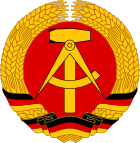Elections in Germany include elections to the Bundestag, the Landtags of the various states, and local elections.

Federal elections were held in Germany on 21 February 1887. The National Liberal Party became the largest party in the Reichstag by winning 99 of the 397 seats, whilst the Centre Party, formerly the largest party, was reduced to 98 seats. Voter turnout was 77.5%.
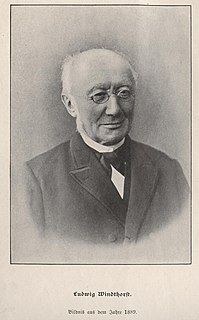
Federal elections were held in Germany on 28 October 1884. The Centre Party remained the largest party in the Reichstag, with 99 of the 397 seats. Voter turnout was 60.5%.
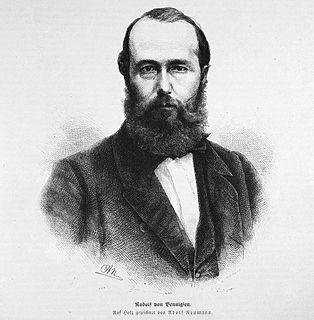
Federal elections were held in Germany on 30 July 1878. The National Liberal Party remained the largest party in the Reichstag, with 99 of the 397 seats. Voter turnout was 63.4%.

Elections to the United States House of Representatives for the 29th Congress were held at various dates in different states from July 1844 to November 1845.

German submarine U-99 was a Type VIIB U-boat of Nazi Germany's Kriegsmarine during World War II. She was laid down on 31 March 1939 at the Friedrich Krupp Germaniawerft in Kiel as yard number 593. She was launched on 12 March 1940 under the command of Korvettenkapitän Otto Kretschmer and was assigned to the 7th U-boat Flotilla based in Kiel and later in St Nazaire.
Varanasi Lok Sabha constituency is one of the 80 Lok Sabha (parliamentary) constituencies in Uttar Pradesh state in northern India.
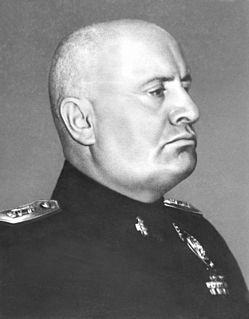
General elections were held in Italy on 26 March 1934. At the time, the country was a single-party state with the National Fascist Party (PNF) as the only legally permitted party.

The European Parliament election of 2009 in Germany was the German part of the European Parliament election, 2009. The voting was held on Sunday, 7 June. A total of 26 parties competed for the 99 seats reserved for Germany in the European Parliament. In the previous election of 2004, the six parties which were represented in the German national parliament (Bundestag) from 2005 to 2013, had entered the European Parliament by overcoming the 5% election threshold. The same parties entered the European Parliament this time. None of the other parties managed to gain more than 1.7%, but together the small parties exceeded 10% for the first time. At 43.3%, the voter turnout was just over the all-time low in the previous European election in Germany (43.0%).

Parliamentary elections were held in Germany on 29 March 1936. They took the form of a single-question referendum, asking voters whether they approved of the military occupation of the Rhineland and a single party list for the new Reichstag composed exclusively of Nazis and nominally independent "guests" of the party. Like previous elections in Nazi Germany, it was characterized by high turnout and a massively lopsided result, with an official 99.0% turnout. In a publicity stunt, a handful of voters were packed aboard the airships Graf Zeppelin and Hindenburg, which flew above the Rhineland as those aboard cast their ballots.
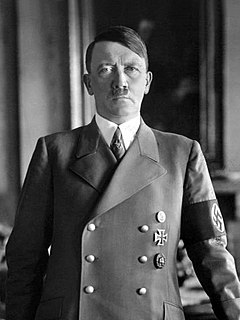
Parliamentary elections were held in Germany on 10 April 1938. They were the final elections to the Reichstag during Nazi rule and took the form of a single-question referendum asking whether voters approved of a single list of Nazis and pro-Nazi "guest" candidates for the 813-member Reichstag as well as the recent annexation of Austria. Turnout in the election was officially 99.5% with 98.9% voting "yes". In Austria official figures claimed 99.73% voted in favour with a turnout of 99.71%.

Legislative elections were held in the German Democratic Republic on 8 June 1986. 500 deputies to the Volkskammer were elected, with all of them being candidates of the single-list National Front. 703 Front candidates were put forward, with 500 being elected and 203 becoming substitute deputies. At its first session on 16 June, the Volkskammer re-elected Willi Stoph as Chairman of the Council of Ministers, while Erich Honecker, General Secretary of the ruling Socialist Unity Party, was also re-elected Chairman of the Council of State.

Legislative elections were held in the German Democratic Republic on 14 June 1981. 500 deputies to the Volkskammer were elected, with all of them being candidates of the single-list National Front. 679 Front candidates were put forward, with 500 being elected and 179 becoming substitute deputies. At its first session on 25 June, the Volkskammer re-elected Willi Stoph as Chairman of the Council of Ministers, while Erich Honecker, General Secretary of the ruling Socialist Unity Party, was also re-elected Chairman of the Council of State.

Legislative elections were held in the German Democratic Republic on 2 July 1967. 434 deputies to the Volkskammer were elected, with all of them being candidates of the single-list National Front, dominated by the Communist Socialist Unity Party of Germany. 583 Front candidates were put forward, with 434 being elected. The allocation of seats remained unchanged from the 1963 election.

Legislative elections were held in the German Democratic Republic on 20 October 1963. They were to originally be held in November 1962 but were postponed. 434 deputies to the Volkskammer were elected, with all of them being candidates of the single-list National Front, dominated by the Communist Socialist Unity Party of Germany.

Legislative elections were held in the German Democratic Republic on 17 October 1954. There were 466 deputies to the Volkskammer in total. All were candidates of the single-list National Front, dominated by the Communist Socialist Unity Party of Germany. The list received the approval of 99.46% of voters, with turnout reported to be 98.5%.

Parliamentary elections were held in the German Democratic Republic on 19 October 1950. They were the first held since the founding of the country on 7 October 1949. There were 466 deputies to the Volkskammer in total.

A referendum on the Anschluss with Germany was held in German-occupied Austria on 10 April 1938, alongside one in Germany. German troops had already occupied Austria one month earlier, on 12 March 1938. The official result was reported as 99.73% in favour, with a 99.71% turnout.

Elections for the Third German People's Congress were held in East Germany on 15 and 16 May 1949. Voters were presented with a "Unity List" from the "Bloc of the Anti-Fascist Democratic Parties," which in turn was dominated by the Communist Socialist Unity Party. They only had the option of approving or rejecting the list. In much of the country, the vote was not secret.
NA-100 (Chiniot-II) is a constituency for the National Assembly of Pakistan. It comprises Chiniot Tehsil and a some areas of Bhowana Tehsil. The constituency was formally known as NA-86 (Jhang-I) before the 2018 delimitations. The creation of Chiniot District in 2009 from areas previously included in Jhang District mandated this change in nomenclature.
